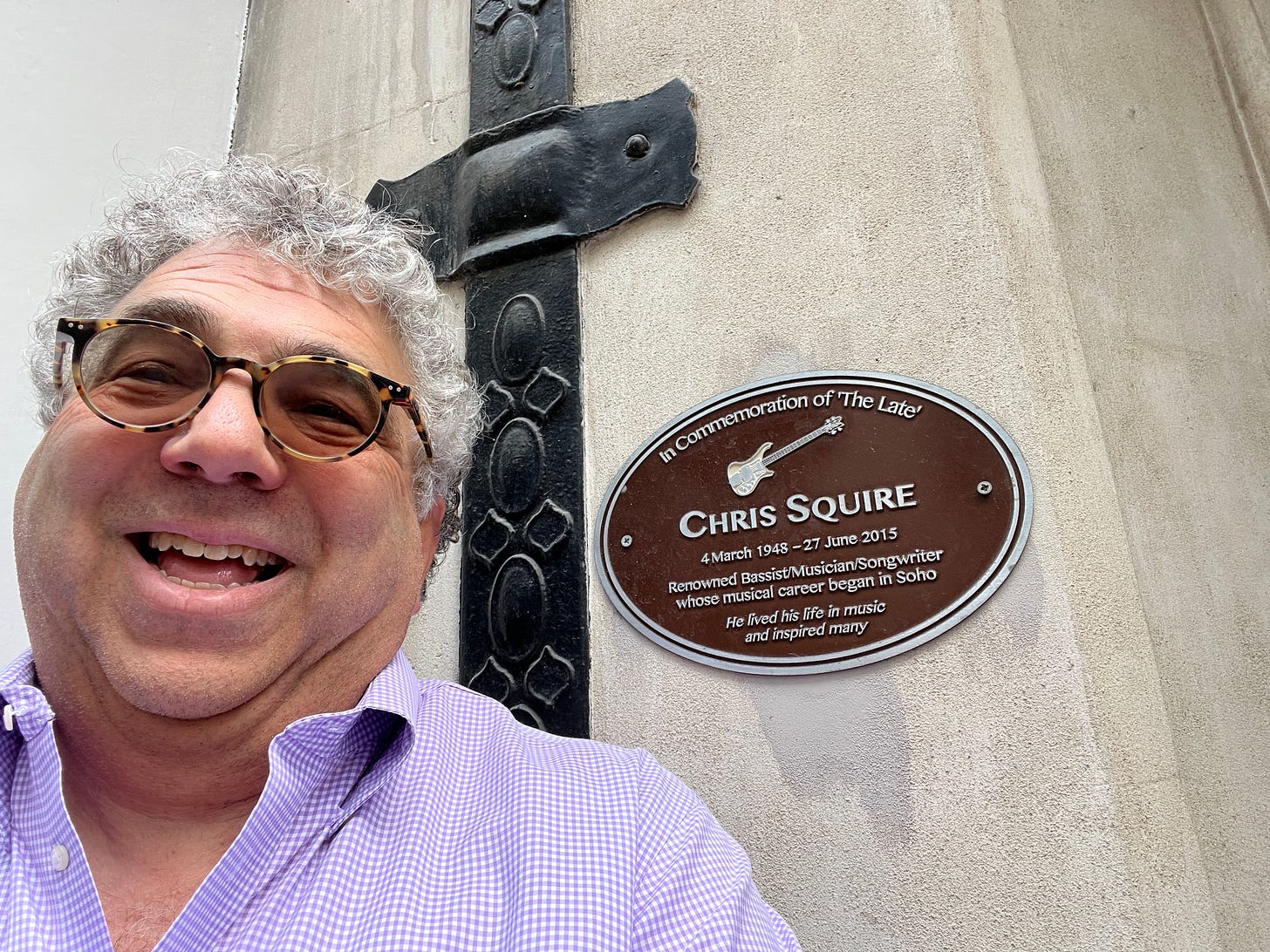Chris Squire
Why I rowed 30,000m in April
Most of my projects don’t have a definite end state – I’m exploring, taking something apart, trying to learn a new skill or otherwise riffing on some theme. When I signed up to row 30,000 meters in support of the Leukemia and Lymphona Society, I knew exactly how I wanted this one to end, however: writing about Chris Squire.
Chris Squire was the founding bass player of Yes, and played with every configuration of the band until his death in 2008. He was my first bass player influence; he wasn’t just playing a rhythm line to support the complex Yes melodies but stepped out and took on melodic lines, thundered into the open with powerful riffs, and got a sound out of that Rickenbacker bass that was as big as he was.
Along with Jon Camp of Renaissance, Geddy Lee from Rush, and later Phish’s Mike Gordon, Trey Anastasio Band’s Tony Markellis, Jaco Pastorius and Ron Carter, Squire is the root tone of my interest, desire and passion for bass playing. I can’t wear vertical stripes the way he did, but I’ve disassembled a few of his bass lines and uncovered superb musical theory, creativity, and a lot of influences ranging from church organ repertoire to American blues scales.

I had the privilege of seeing Squire with Yes about a dozen times, including one meet and greet just a few years before he passed away. While Steve Howe provided the high end drive and Jon Anderson (later, Benoit David and Jon Davidson) layered on vocals, it was Squire on stage that literally powered the band with (late) Alan White on the drums. The medallions, capes, long striped jackets, long hair – all artifacts of the 70s prog environment – just accented his ability to command a stage. His ability to play – and control – the triple neck bass on “Awaken” and simultaneously pound out the bass line to the “Wurm” section of “Starship Trooper” while also driving the Moog Taurus pedal with his feet were things you had to see, feel and hear to appreciate a man who was larger, more rock and roll and just a little bit louder than you’d expect.

Stories about Squire abound: He was habitually late. His proclivity for long baths and/or flooding a bathroom gave rise to the “Fish” nickname. He wasn’t the best driver. He was kicked out of high school for refusing to cut his hair, took up selling instruments at the Boosey and Hawkes store in Soho, and the rest is prog rock history. There is a plaque on Wickham Street in London’s Soho commemorating both his musicianship and tardiness. During the Yes Meet & Greet I had the band members sign my vinyl copy of “Close To The Edge”. Squire’s signature is the largest.
Yes announced in May 2015 that Squire was fighting acute erythroid leukemia, a rare form of acute myeloid leukemia and would stop touring. Six weeks later, at the end of June 2015, he passed away from complications of treating the disease.
One of the few Yes songs with Squire as solo composer is “Onward,” a slightly sentimental song about a truly outstanding night with a loved one. Squire gave me, our son, our friends and family many, many of those nights.
When I sat down for the first LLS metered row in April, I knew the destinations: $1,250 raised, 30,000 meters covered, and a rock and roll story. If you want to make a donation (available through Facebook fundraising only, apologies) the full site is here: Rowheed and Cambria.
Thank you for your donations, encouragement and personal reflections.
